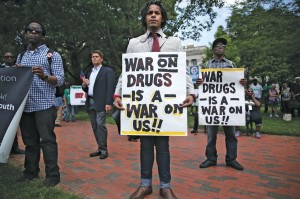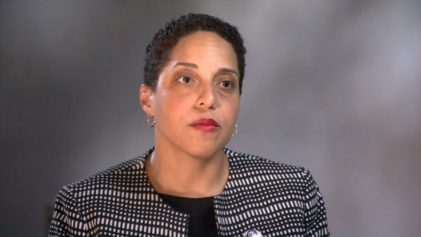
The International New York Times reported that thanks to the efforts of President Obama and the approval of House Speaker John Boehner, Congress appears ready to reverse course on a policy that has resulted in the U.S. having the highest incarceration rate in the Western world at 750 per 100,000 people.
The Times article points out that in the middle of the twentieth century, U.S. incarceration rates were in line with the rest of the world at around 170 per 100,000. There are now 2.2 million people behind bars in America, and although federal legislation would only affect the 207,600 people in federal prison, the federal system has the fastest growing population in the country. Nearly half of federal prisoners are behind bars due to drug offenses. Further, it is expected that reform on the federal level would present a model for states to follow.
“If we can show leadership on the federal level, I think it will encourage other states to open this issue up for debate,” said Sen. Richard J. Durbin (D-Illinois). “The notion that we can create a bipartisan force for this really has value,” he added.
The overcriminalization of America has united lawmakers regardless of political affiliation, with a concern over government overreach and soaring costs to the taxpayer, but ultimately with a substantial human and moral cost. Lawmakers seek to combine a number of proposals, including recidivism programs that would reduce sentences by up to a quarter, alternatives for low-level offenders, and giving judges discretion to sentence low-level drug offenders to less time than the mandatory minimum if they met certain requirements.
Meanwhile, a bill sponsored by Representatives Jim Sensenbrenner (R-Wisconsin) and Robert C. Scott (D-Virginia) would change sentencing and the federal probation system, and allow certain prisoners the chance to reduce their prison time by one third.
“I’ve long believed there needed to be reform of our criminal justice system,” said Mr. Boehner. “We’ve got a lot of people in prison, frankly, that don’t really in my view need to be there. It’s expensive to house. Some of these people are in there for what I’ll call flimsy reasons.”
The rise in prisoners has been a direct outgrowth of changes in sentencing laws, which both expanded sentences and increased the number of bodies behind bars. Further, with the advent of mandatory minimum sentencing, which Congress adopted in 1986, judges no longer had latitude or discretion to dole out individualized sentences.
In light of this environment for reform, there are efforts to increase educational opportunities for prisoners. Politico reported that as early as this week, the president could lift the 20-year ban on Pell grants for state and federal prisoners. Prisoners who participate in education programs are 43 percent less likely to return to prison and 13 percent more likely to have a job after their release.
“Philanthropy groups and lawmakers are giving college education for prisoners a fresh look, as criminal-justice policies around the country place greater emphasis on preparing inmates for life beyond bars,” according to the Wall Street Journal.
Meanwhile, there are growing concerns that immigrants are losing out in the push for prison reform. In the Huffington Post, Anita Sinha– Practitioner-in-Residence at the American University, Washington College of Law–argues that under Obama, immigrant detention has increased 25 percent per year. Sinha calls immigration detention the “largest mass incarceration movement in U.S. history,” adding that “While the critical subject of a runaway U.S. criminal justice system is gaining momentum toward reforms, the Obama Administration is vigorously defending the mass detention of non-U.S. citizens, including the detention of women and children. Recent developments in both arenas demonstrate the stark contrast in the way the government is treating these two American modes of ‘hyperincarceration.'”
Others believe President Obama can do more in the area of criminal justice reform. For example, writing for the New York Daily News, Inimai Chettiar, director of the justice program at the Brennan Center for Justice, says Obama could issue far more commutations for the 100,000 low-level drug offenders in prison.
In addition, the president has only approved 1 percent of clemency applications, and the lowest number in the past 100 years excluding than George W. Bush. Further, Chettiar recommends that Obama redirect the $3.8 billion in criminal justice grants tat go to states and cities. While most of these funds currently create incentives to increase arrests, seizures, prosecutions and sentences, Obama “can issue an executive order mandating that federal agencies tie grant dollars to whether states and cities show they are reducing both crime and imprisonment rates,” she wrote.
Finally, as the #BlackLivesMatter movement has generated discussion and debate over racism and policing tactics, H.A. Goodman suggests there is a need for federal legislation to protect African Americans from aggressive law enforcement tactics.
“Combined with a national prison system that is fueled by profit, viewing black citizens as just another form of tax revenue is one of the many reasons Congress should address the unique situation faced by African-Americans in 2015,” Goodman wrote for the Huffington Post.
Asking why cities such as Ferguson have decided to view Black people as a means of generating extra revenue, he calls for a Sandra Bland or Eric Garner Act.
“No other ethnic group in the U.S. was enslaved for hundreds of years, no other group faced Jim Crow, and today, no other group is in greater need of such sweeping legislation,” Goodman added. “It’s time for Congress to specifically address the issue of systemic brutality, in the name of public safety, against America’s black citizens.”

